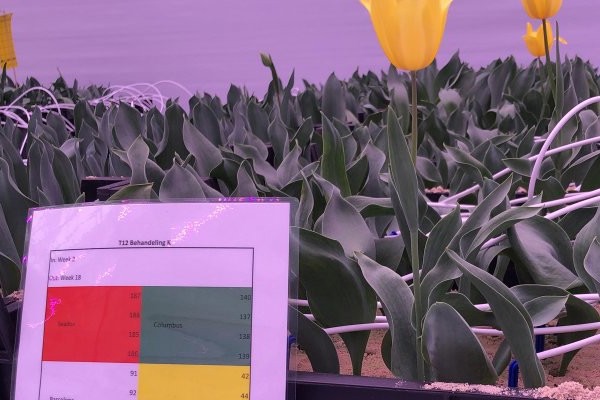Fewer and fewer crop protection is allowed in the cultivation of flower bulbs. Moreover, the social discussion about chemical crop protection is increasing. This means that the bulb sector may have to look for new, more sustainable cultivation methods. In other words: how can bulbs be grown using fewer crop protection?
WUR is investigating methods for growing not in the ground but in reusable plastic gutters: in such a system, there is less pressure from diseases and pests from the soil. WUR is also investigating whether it is possible (both technically and economically) to have part of the cultivation take place in a greenhouse. This approach is called a fundamental system leap. Other themes that WUR is working on include Integrated Crop Management and resilient cultivation (Resilient Bulb project).

WUR does this with a small team of researchers who specialize in flower bulbs. They can use the expertise of other researchers from the Greenhouse Horticulture and Flower Bulbs Business Unit for their research and work together on projects.
In addition, the researchers work together with growers who are united in product groups, and there is intensive contact with the Flower Bulb Research Foundation, which knows what future-oriented knowledge is needed. Moreover, collaboration with practitioners is essential for the financing of research for an application to the Top Sectors where there is public-private collaboration. Since the abolition of the product boards, participation by third parties has been a condition in such public-private partnerships.
De Hoog: "That is why, as WUR researchers, we are now more often found at meetings where growers are also present. Think of the 'Tulip Day', the 'Lily Day' and relationship events of suppliers. There we will discuss with attendees how research and entrepreneurs can work together on a future-oriented flower bulb sector. "
Source: wur.nl
